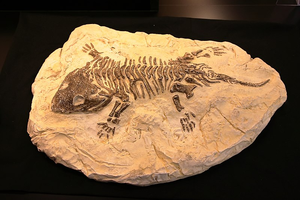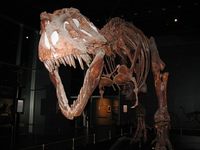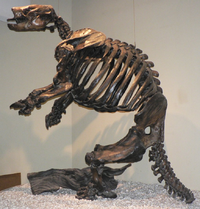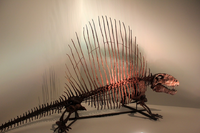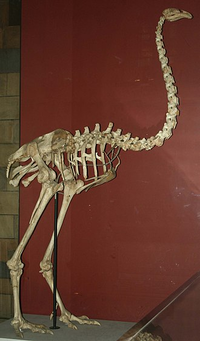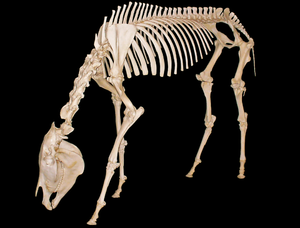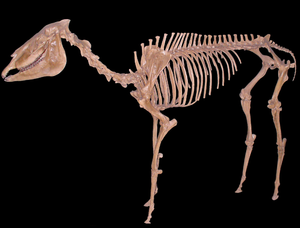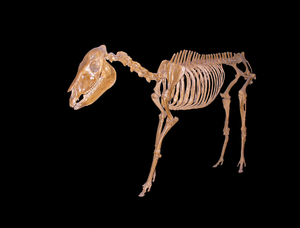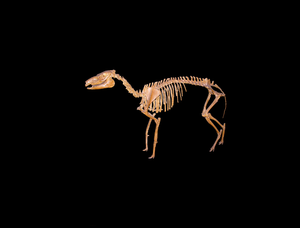Difference between revisions of "Fossil"
(→Evidence of Evolution) |
(→Evidence of Evolution) |
||
| Line 37: | Line 37: | ||
|[[File:HorseFossil3.png|center|300px]] | |[[File:HorseFossil3.png|center|300px]] | ||
|- | |- | ||
| − | | style="height:20px; width:300px; text-align: | + | | style="height:20px; width:300px; text-align:left;" | |
: Modern horse fossils are only found in rocks younger than 5 million years old. | : Modern horse fossils are only found in rocks younger than 5 million years old. | ||
| − | | style="height:20px; width:300px; text-align: | + | : They are around 6 feet tall, have hooves and a large nose. |
| + | | style="height:20px; width:300px; text-align:left;" | | ||
: This fossil comes from 7 million year old rocks. | : This fossil comes from 7 million year old rocks. | ||
| − | : | + | : It is shorter and has a smaller nose than modern horses. |
: You do not find modern horse fossils in rocks this age. | : You do not find modern horse fossils in rocks this age. | ||
|- | |- | ||
| Line 47: | Line 48: | ||
|[[File:HorseFossil1.png|center|300px]] | |[[File:HorseFossil1.png|center|300px]] | ||
|- | |- | ||
| − | | style="height:20px; width:300px; text-align: | + | | style="height:20px; width:300px; text-align:left;" | |
| − | | style="height:20px; width:300px; text-align: | + | : This fossil comes from 12 million year old rocks. |
| + | : It has a small hoof but toes next to the hooves. | ||
| + | | style="height:20px; width:300px; text-align:left;" | | ||
: This fossil comes from 34 million year old rocks. | : This fossil comes from 34 million year old rocks. | ||
| − | : | + | : This ancestor of modern horses had toes without a hoof and was the size of a dog. |
|} | |} | ||
==Key Stage 3== | ==Key Stage 3== | ||
The remains of a dead creature that have been turned into [[rock]] over millions of years. | The remains of a dead creature that have been turned into [[rock]] over millions of years. | ||
Revision as of 08:17, 30 August 2018
Key Stage 2
Meaning
A fossil is a piece of a dead creature that has turned into rock over millions of years.
About Fossils
- A fossil begins as a creature that dies and falls into mud or sand.
- Over millions of years the mud or sand turns into a rock with the creature trapped inside.
- The creature is replaced by minerals leaving a rock that is the same shape as the creature.
- In animals it is usually only the bone that becomes a fossil.
Evidence of Evolution
- Fossils show us many creatures that do not exist anymore.
| The Tyrannosaurus Rex is a Dinosaur that became extinct 66 million years ago. | The Giant Sloth lived in North America and became extinct 10,000 years ago at the end of the last Ice Age. |
| The Dimetrodon became extinct long before the Dinosaurs even existed. | The Moa has only been extinct for about 500 years. |
- Fossils appear slightly different as you dig into older rocks. When you dig far enough the oldest fossils look very different to the modern creatures.
|
|
|
|
Key Stage 3
The remains of a dead creature that have been turned into rock over millions of years.
